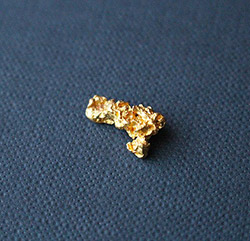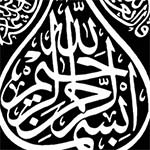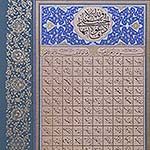Prophet Muhammad  as the Sufi’s Model
as the Sufi’s Model
In the tradition of Sufism Muhammad (peace be upon him) is respected as the prototypical example of a true human being. Sufis strive to emulate his behavior in the hope of attaining a similar close and loving relationship with the Creator.
We sent thee (O Muhammad) not except as a mercy for all creatures. (Qur'an 21:107)

Allah designated certain persons as His prophets, to be living repositories of direct knowledge from Him. As Allah’s representatives on earth, the prophets (peace be upon them all) were obliged to consistently affirm the reality of the all-embracing dominion of Allah. They were sent as warners to people whose customs deviated from divinely prescribed behavior, in order to reinforce a sanctified relationship between God and mankind. The main vehicle for this sacred connection was the covenant, the ageless pact wherein human beings acknowledge the sovereignty of their Lord, who in turn reciprocates with His promise of divine guidance and protection. Allah established this spiritual contract in human society with Adam (pbuh), whom He appointed as His first prophet. The divine covenant was subsequently renewed under the leadership of the prophets who succeeded Adam (pbuh) throughout the course of human spiritual development.
Mankind was one community. Then Allah sent prophets as bearers of good news and as warners, and sent down with them the scripture with the truth that it might judge between human beings concerning the subjects in which they differed. (Qur'an 2:213)

All of the prophets attained high degrees of virtuous traits commensurate with the needs of their people. The knowledge they transmitted was designed to be reflected in their living example. The station of prophethood reached maturity in Muhammad (pbuh).
Muhammad is not the father of any one among you men, but he is the Messenger of Allah and the Seal of the Prophets; most definitely, Allah knows everything. (Qur'an 33:40)
The perfect rendering of Allah’s knowledge in the Qur'an finds its living example in the last Prophet (pbuh), who exemplifies the ideal inner and outer reality of the human being. Muhammad (pbuh) fully actualizes the outer form and the inner content of the knowledge of Himself that Allah chose to impart to man. All of the virtuous traits which Allah encourages humans to strive to attain are contained within his being. In other words, Muhammad (pbuh) is the Qur'an. His reality is the synthesis of Ilm al Yaqin, knowledge through communication, ‘Ayn al Yaqin, knowledge through experience, and Haqq al Yaqin, knowledge through direct communion with Allah, the complete scope of Allah’s greatest favor to us, which is insight into the ultimate truth.
Today have I perfected your din (way of life; religion; path of righteousness to Allah) for you, completed My favor upon you, and have chosen for you Islam (surrender; submission) as your din. (Qur'an 5:3)

In Muhammad (pbuh), the circle of human development is completed. From His face, His essence, Allah created the Light of Muhammad, which is the spiritual essence of all believers. Allah reinforced the earthly manifestation of His light continuously throughout the history of mankind by sending a succession of prophets to help secure the truth within the hearts of believers. The light-circuit was clinched with the arrival of Muhammad (pbuh) in physical form on the earth, as he was the material manifestation of the primordial energy with which Allah chose to grace the human being. Muhammad (pbuh) exemplifies the spiritual knowledge and demeanor of insan-i-kamil, the perfected human being. He is both the prototype and the ultimate actualization of the human model that Allah had in mind at the outset of creation.








